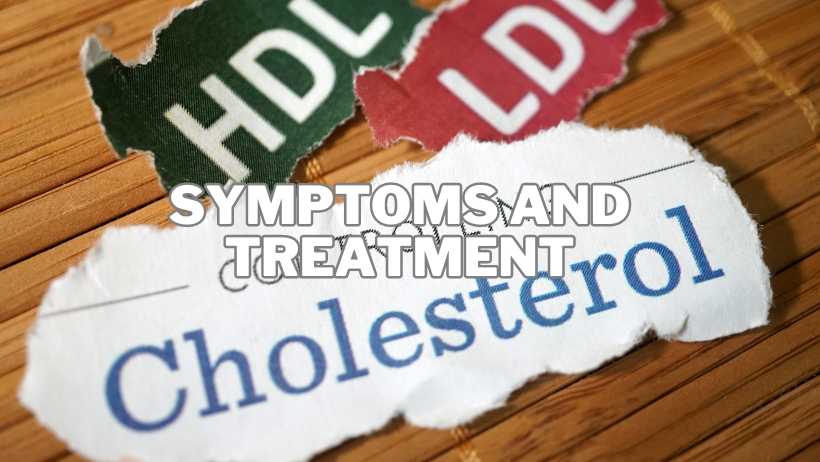
Learn about the causes, symptoms, and treatment options for high cholesterol. Understand the impact of different types of cholesterol on your health. Manage and prevent high cholesterol with lifestyle changes, medication, and routine screenings.
If you’re one of the 94 million adults in the U.S. dealing with high cholesterol, you’re not alone. High cholesterol is a common issue that often goes unnoticed due to the lack of symptoms it causes. That’s why routine screenings are crucial for early detection and management.
This article will explore the causes of high cholesterol, including factors like diet, genetics, and certain health conditions. We’ll also dive into the different types of cholesterol and their impact on our health. Additionally, you’ll learn about the various treatment options available, ranging from lifestyle changes to medication.
Home remedies and supplements may also be beneficial, although more research is still needed. Prevention plays a significant role in tackling high cholesterol, which can be achieved through maintaining a healthy weight, regular exercise, and a nutritious diet. So, whether you’re looking to manage high cholesterol or prevent it altogether, this article has got you covered.
Causes of High Cholesterol
High cholesterol is a common issue in the U.S., affecting nearly 94 million adults. There are several factors that can contribute to high cholesterol levels in your body. One of the main causes is your diet.
Consuming foods that are high in saturated and trans fats, such as red meat, full-fat dairy products, and fried foods, can increase your cholesterol levels. Another factor is smoking. Smoking not only damages your lungs, but it also lowers your levels of HDL cholesterol, which is considered “good cholesterol.”
Additionally, genetics can play a role in high cholesterol. If you have a family history of high cholesterol or heart disease, you may be at a higher risk. Lastly, certain health conditions, such as diabetes, hypothyroidism, and kidney disease, can contribute to high cholesterol levels in your body.
Types of Cholesterol
Understanding the different types of cholesterol is essential in comprehending the impact it can have on your health. LDL cholesterol, often referred to as “bad cholesterol,” can build up in the walls of your arteries, leading to a condition known as atherosclerosis. This condition can increase your risk of heart disease and stroke.
On the other hand, HDL cholesterol, often called “good cholesterol,” helps remove LDL cholesterol from your bloodstream, reducing the risk of complications. Finally, triglycerides are another type of lipid that can contribute to high cholesterol. They are found in foods that are high in carbohydrates and sugars, and high levels can also lead to health problems.
Symptoms of High Cholesterol
One of the challenges with high cholesterol is that it rarely causes symptoms. Therefore, it’s important to prioritize routine screenings to identify and address high cholesterol levels early on. By being proactive about your health, you can take necessary steps to lower your cholesterol and reduce the risk of complications.
Importance of Routine Screenings
Routine screenings for high cholesterol are crucial, especially if you have risk factors such as a family history of high cholesterol or heart disease. These screenings involve a simple blood test that measures your cholesterol levels.
By undergoing regular screenings, you can identify any potential issues and take appropriate actions to manage your cholesterol levels. It is also valuable in identifying potential health complications that may arise as a result of high cholesterol, such as heart disease and stroke.
Testing Cholesterol Levels
Testing your cholesterol levels involves a straightforward blood test. Typically, this test measures your total cholesterol, LDL cholesterol, HDL cholesterol, and triglyceride levels. It is important to fast for at least 9-12 hours before the test to ensure accurate results. Your healthcare provider will provide instructions on when and how to get tested. The results of these tests will help determine the appropriate course of action to manage your cholesterol levels effectively.
Treatment Options
Managing high cholesterol often involves a combination of lifestyle changes and medication. Lifestyle changes can have a significant impact on your cholesterol levels and overall health. Adopting a healthy diet that is low in saturated and trans fats, and high in fruits, vegetables, whole grains, and lean proteins can help lower your cholesterol.
Regular exercise is also essential, as it helps raise HDL cholesterol levels and improve overall cardiovascular health. Additionally, quitting smoking is crucial, as it can increase HDL cholesterol levels and reduce the risk of heart disease.
In some cases, lifestyle changes alone may not be sufficient to manage high cholesterol levels. In such instances, your healthcare provider may prescribe medication to help lower your cholesterol. The most commonly prescribed medications are statins, which work by reducing the production of cholesterol in the liver.
Other medications, such as bile acid sequestrants, cholesterol absorption inhibitors, and fibrates, may also be prescribed depending on your specific health condition and risk factors. In certain cases, a combination of lifestyle changes and medication may be necessary to effectively manage high cholesterol.
Medications for Lowering Cholesterol
Statins are the most commonly prescribed medications for lowering cholesterol levels. They work by blocking the enzyme responsible for producing cholesterol in the liver. By reducing cholesterol production, statins help lower LDL cholesterol levels.
However, it is important to note that statins may have some side effects, such as muscle pain and digestive issues. It is essential to discuss any concerns or potential side effects with your healthcare provider. In some cases, other medications, such as bile acid sequestrants or cholesterol absorption inhibitors, may be prescribed as alternatives or in combination with statins.
Home Remedies and Supplements
While lifestyle changes and medications are the primary methods of managing high cholesterol, some individuals may consider home remedies and supplements. However, it is crucial to note that the effectiveness of home remedies in lowering cholesterol is still being studied.
Some commonly suggested home remedies include consuming foods that are high in fiber, such as oatmeal and legumes, incorporating healthy fats from sources like olive oil and avocados, and increasing your intake of omega-3 fatty acids through foods like fatty fish or supplements.
It is important to consult with your healthcare provider before relying solely on home remedies or supplements, as they may not be suitable for everyone and may interact with other medications.
Importance of Routine Screenings
Routine cholesterol screenings are particularly important for individuals at risk of high cholesterol or heart disease. By undergoing regular screenings, you can monitor your cholesterol levels and take necessary steps to maintain a healthy lifestyle and manage any potential health complications. It is recommended to consult with your healthcare provider to determine the appropriate frequency of screenings based on your individual risk factors and medical history.
Additionally, cholesterol screenings are often part of a broader strategy for identifying and managing heart disease. Since high cholesterol is a significant risk factor for heart disease, routine screenings can help identify potential risks and allow for early intervention and treatment.
In conclusion, high cholesterol is a prevalent issue affecting millions of individuals in the U.S. Understanding the causes, types, symptoms, and treatment options for high cholesterol is essential for managing this condition effectively.
By adopting a healthy lifestyle, undergoing routine screenings, and working closely with your healthcare provider, you can take control of your cholesterol levels and reduce the risk of complications. Remember, prevention is always better than cure, so prioritize your health and make necessary changes to live a cholesterol-friendly life!










